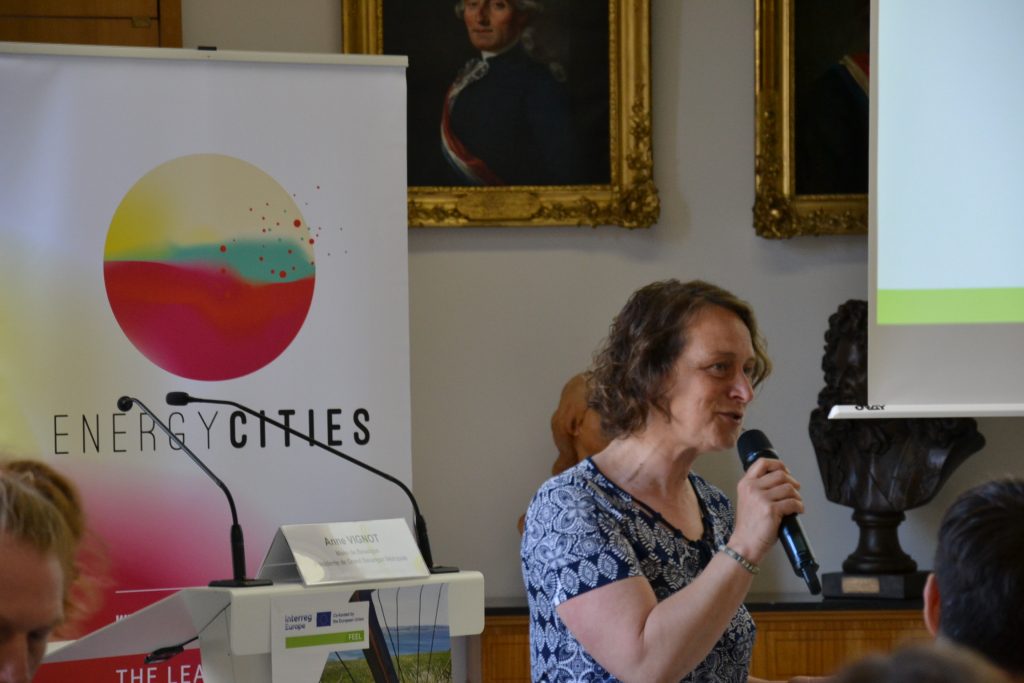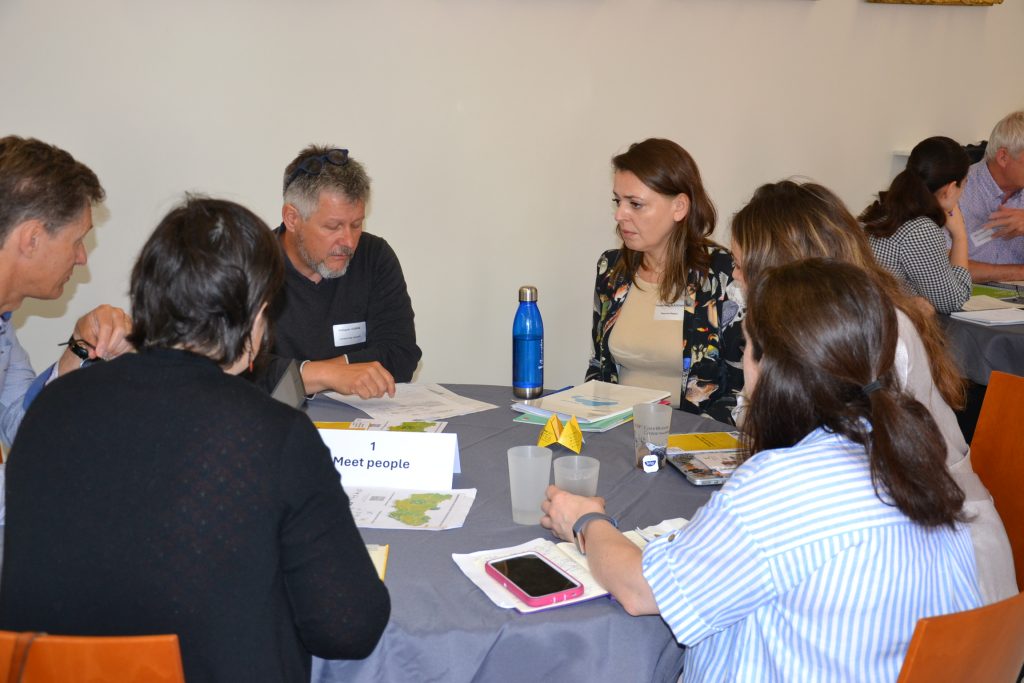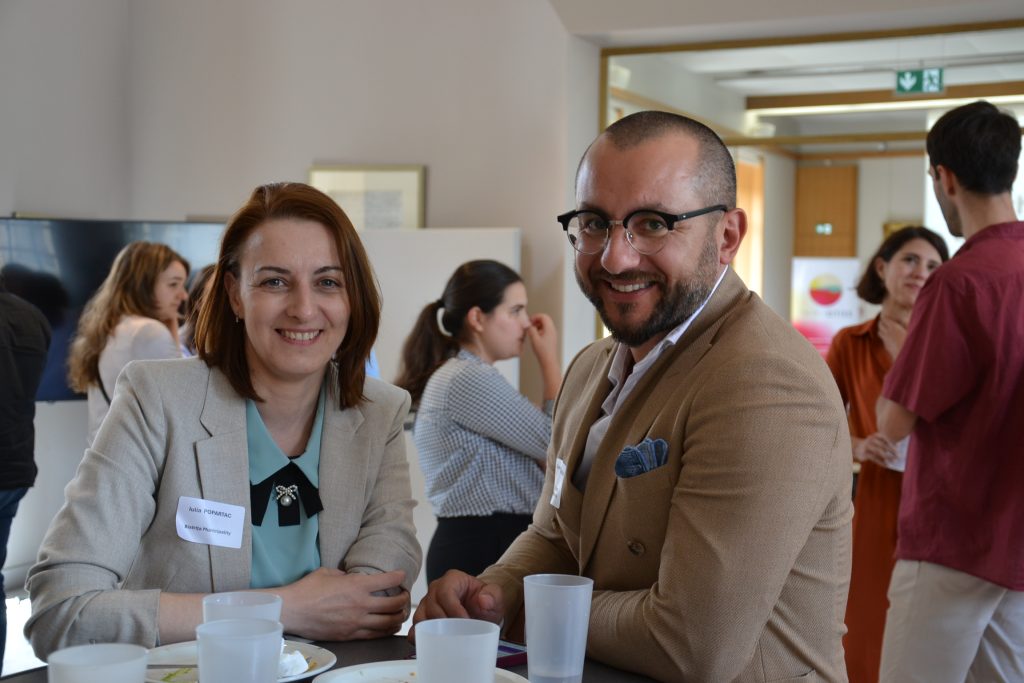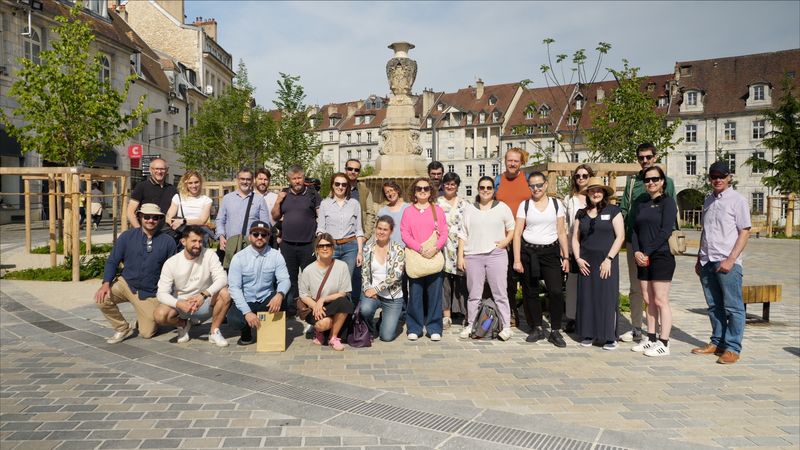How can frugality be integrated into local policies?
Learning from the practices of others
Partners involved in the FEEL project met in Besançon to find out what the city is doing in terms of frugality, vegetation and energy efficiency, and to talk to some of the local actors.
It was also an opportunity for them to get together and develop a common vision of frugality as part of the European FEEL project (Frugal Cities through Energy Efficiency and Low-Tech communities).
Different definitions, the same ambition
For some, frugality is synonymous with sobriety, specific actions and saving resources, while for others it is more of a concept, a way of life or a matter of urgency.
There are as many perceptions and definitions as there are people involved, but everyone at the meeting in Besançon spoke with one voice to ensure that frugality is also a matter for citizens, agreeing that a more frugal society cannot be achieved without local people and partners.



“Working together”: Besançon & Lyon, inspiring initiatives
Since the beginning of 2023, the City of Lyon has been holding a series of meetings called Agora Lyon 2030, which brings together around sixty local organisations, including those working with citizens and young people, businesses and leaders of economic networks, those involved in education and research, public and semi-public bodies, etc. The members of Agora drew up the Lyon 2030 Climate Pact, which was approved by the City Council in September 2023. It includes 29 lines of action for the public authorities and 16 collective commitments with sobriety as a central theme: educating the general public, sobriety in buildings, mobility and sustainable logistics, renewable energies, adaptation measures for water, tackling the challenges of insecurity, developing research, etc.
Grand Besançon Métropole (GBM), for its part, set up a Climate Club five years ago, bringing together around a hundred of the region’s economic and civil society players, with the aim of encouraging the emergence of local initiatives and solutions to protect the climate and the environment, as well as developing synergies between the various players in the region. With its new Climate Plan, Grand Besançon Métropole has set itself a proactive goal: to meet the COP21 targets and become a positive energy territory by 2050. To achieve this, GBM has launched a two-month public consultation to gather as many contributions as possible from residents, elected representatives and citizens alike.
So what’s new on the European scene?
Energy Cities presented the state of play on the European scene five years after the adoption of the Green Deal.
There is no denying that sobriety is the missing pillar of European policy.
Concrete measures do exist, but they were taken in the context of the crisis in Ukraine. However, the challenge of proposing a sobriety strategy as part of the next European legislative cycle is crucial. This is the aim of the Manifesto signed by 75 European organisations in April 2024. It makes recommendations on how to integrate sobriety into the governance and objectives for 2040, as well as into the Union’s sectoral policies in the light of a new Commission.
And in the field?
While the first day of the meeting was all about presentations, discussions and exchanges, the second morning was an opportunity to stroll through the streets of Besançon and meet with local players.
We were able to see how a central city square is being replanted to combat heat islands, how a university building is being renovated with materials and furniture on an impressive scale (carpentry, seating, toilets, etc.), and how a local community centre has been inventing a new way of occupying space, thinking about the make-up of the city and building a community for the past 7 years.


